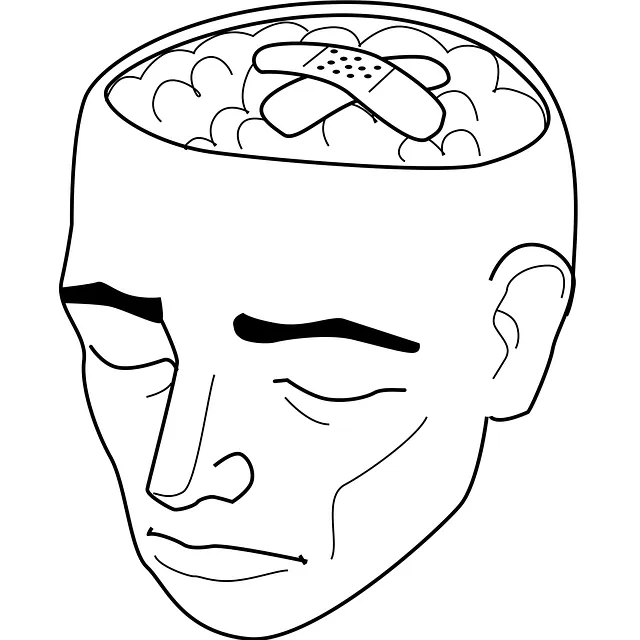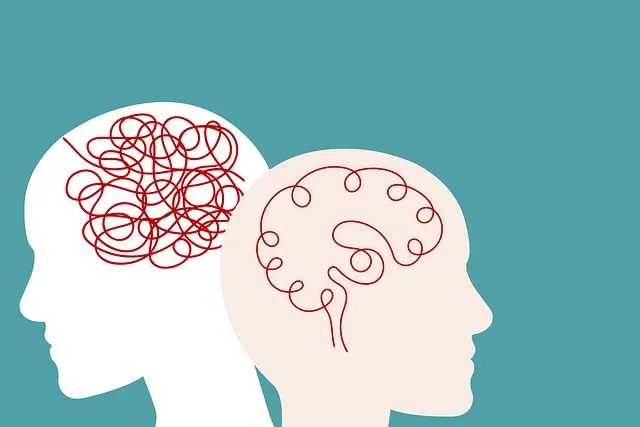The Longmont Kaiser Permanente mental health department prioritizes cultural sensitivity as a key strategy for enhancing patient care and outcomes. By acknowledging diverse cultural backgrounds, they create inclusive environments, implement tailored treatment plans, and foster trust through outreach programs. Challenges like language barriers are addressed with empathy-building strategies, stigma reduction programs, and comprehensive training for healthcare providers. Success is measured through KPIs such as diversity in treatment approaches, improved access to care, and reduced disparities in mental health outcomes, combined with qualitative assessments and regular policy analysis.
Cultural sensitivity is a cornerstone in providing effective mental healthcare, especially within diverse communities like those served by Longmont Kaiser Permanente. This article explores the critical role cultural sensitivity plays in improving mental health outcomes at Longmont Kaiser Permanente’s mental health department, serving a patient population of over 300,000. We delve into the impact of cultural diversity, address barriers to culturally competent care, and present strategies to enhance sensitivity, ultimately measuring success through evaluating initiative effectiveness.
- Understanding Cultural Diversity and Its Impact on Mental Health Care
- The Importance of Cultural Sensitivity in Clinical Practice
- Barriers to Providing Culturally Competent Care at Longmont Kaiser Permanente
- Strategies for Enhancing Cultural Sensitivity within the Mental Health Department
- Measuring Success: Evaluating the Effectiveness of Cultural Sensitivity Initiatives
Understanding Cultural Diversity and Its Impact on Mental Health Care

Cultural diversity is a critical aspect that enriches our society but also presents unique challenges in mental healthcare. Recognizing and understanding diverse cultural backgrounds, beliefs, and values are essential steps in delivering effective treatment to a wide range of patients. The Longmont Kaiser Permanente mental health department number serves a diverse community, reflecting the intricate tapestry of cultures within their service area. This awareness becomes paramount when addressing mental health concerns, as cultural contexts significantly influence how individuals perceive and express psychological distress.
For instance, what may be considered a healthy coping mechanism in one culture could be perceived as disruptive or even harmful in another. Burnout prevention strategies for healthcare providers must account for these differences to ensure empathy and effective communication. The successful implementation of community outreach programs and trauma support services can foster trust and encourage individuals from various cultural backgrounds to seek mental health care, breaking down barriers and promoting holistic well-being.
The Importance of Cultural Sensitivity in Clinical Practice

In today’s diverse society, cultural sensitivity within mental healthcare is more crucial than ever. The Longmont Kaiser Permanente mental health department recognizes that understanding and respecting individual cultural backgrounds significantly enhances patient care. Cultural sensitivity involves recognizing and appreciating the unique beliefs, values, and practices of each patient, fostering an environment where they feel heard and understood. This approach ensures that treatment plans are tailored to meet specific cultural needs, addressing not just the symptoms of mental illness but also the underlying social and cultural factors that contribute to them.
By incorporating cultural sensitivity, the Longmont Kaiser Permanente mental health department aims to improve patient outcomes and satisfaction. It facilitates better communication, builds trust, and promotes coping skills development and self-care practices that resonate with diverse populations. Moreover, this approach plays a pivotal role in reducing the stigma associated with mental illness, especially within communities of color, by creating a safe and inclusive space for open discussions and cultural exchange. Such efforts contribute to a holistic understanding of mental health, ensuring comprehensive care tailored to each patient’s unique identity.
Barriers to Providing Culturally Competent Care at Longmont Kaiser Permanente

Providing culturally competent care at Longmont Kaiser Permanente faces several barriers. The mental health department, serving a diverse patient population, often grapples with misunderstandings and miscommunications due to cultural differences. Language barriers, for instance, can hinder in-depth assessments and personalized treatment plans, as patients may feel uncomfortable discussing sensitive topics or struggle to understand their diagnosis and prescribed therapies. Additionally, varying cultural beliefs about mental illness contribute to the stigma surrounding seeking help, making it challenging for healthcare providers to build trust and encourage open communication.
Longmont Kaiser Permanente mental health professionals are working towards overcoming these obstacles through empathy-building strategies, confidence-boosting initiatives, and mental illness stigma reduction efforts. Cultural sensitivity training equips staff with the knowledge to navigate diverse patient backgrounds, fostering a safe and inclusive environment. By incorporating these approaches, the department aims to improve patient outcomes, enhance care satisfaction, and bridge the cultural gap in mental healthcare services.
Strategies for Enhancing Cultural Sensitivity within the Mental Health Department

To enhance cultural sensitivity within the Longmont Kaiser Permanente mental health department, a multi-faceted approach is essential. Implementing comprehensive Healthcare Provider Cultural Competency Training programs is a foundational step. These trainings should cover topics like unconscious bias, microaggressions, and culturally specific therapeutic approaches. Encouraging staff to embrace diverse perspectives fosters an inclusive environment, improving patient interactions and outcomes.
Additionally, integrating Inner Strength Development practices into the department’s framework can significantly contribute to cultural sensitivity. Promoting emotional well-being through mindfulness, stress reduction techniques, and resilience building empowers both patients and healthcare providers. This not only enhances clinical interactions but also strengthens relationships based on mutual understanding and respect. Techniques like these have been proven effective in Emotional Well-being Promotion Techniques, ultimately leading to more successful mental health outcomes tailored to individual cultural needs.
Measuring Success: Evaluating the Effectiveness of Cultural Sensitivity Initiatives

Evaluating the success of cultural sensitivity initiatives within the Longmont Kaiser Permanente mental health department is a multifaceted process. It involves measuring patient outcomes, provider satisfaction, and the overall impact on healthcare equity. Key performance indicators (KPIs) such as diversity in treatment approaches, improved access to care for underrepresented populations, and reduced disparities in mental health outcomes can serve as metrics for success. For instance, tracking the number of culturally competent interventions implemented and their corresponding patient responses can provide valuable insights.
Furthermore, qualitative assessments like provider feedback surveys and patient narratives offer deeper understanding. These methods help gauge the effectiveness of initiatives like Social Skills Training and Burnout Prevention programs, which aim to enhance cultural sensitivity and resilience within the department. Regular Mental Health Policy Analysis and Advocacy efforts also contribute to this evaluation by ensuring that practices remain aligned with community needs and evolving cultural landscapes.
Cultural sensitivity is a cornerstone of effective mental healthcare, and its implementation within institutions like Longmont Kaiser Permanente’s mental health department can significantly improve patient outcomes. By addressing barriers and adopting strategies that foster cultural competence, as evidenced by successful initiatives at the facility, mental health professionals can provide more inclusive and impactful care to a diverse range of patients. This approach ensures that everyone receives support tailored to their unique cultural backgrounds, ultimately enhancing mental well-being within the community.






